This article was co-authored by Damaris Vega, MD. Dr. Damaris Vega is a board certified Endocrinologist. She graduated Magna Cum Laude from the Pontifical Catholic University of Puerto Rico with a BS in General Science and subsequently earned an MD from the Ponce School of Medicine, Ponce, PR. During medical school, Dr. Vega served as president of the Alpha Omega Alpha Medical Honor Society and was selected as her school's representative for the American Association of Medical Colleges. She then completed a residency in Internal Medicine and a fellowship in Endocrinology, Diabetes, Mineral, and Metabolism at The University of Texas Southwestern Medical School. Dr. Vega has been recognized for excellent patient care multiple times by the National Committee for Quality Assurance and received the Patients' Choice Award in 2008, 2009, and 2015. She is a fellow of the American College of Clinical Endocrinologists and is an active member of the American Association of Clinical Endocrinologists, the American Diabetes Association, and the Endocrine Society. Dr. Vega is also the founder and CEO of Houston Endocrinology Center as well as a principal investigator for multiple clinical trials at Juno Research, LLC.
There are 8 references cited in this article, which can be found at the bottom of the page.
wikiHow marks an article as reader-approved once it receives enough positive feedback. This article received 11 testimonials and 100% of readers who voted found it helpful, earning it our reader-approved status.
This article has been viewed 290,605 times.
There are a ton of melatonin supplements out there that claim to help you fall asleep easier and faster. But do they work? The short answer is that melatonin can be very useful to those who need help falling asleep, but you shouldn’t plan to take it every day. To help you separate fact from fiction, we’ve answered some of the most common questions that people have about taking melatonin.
Steps
Expert Q&A
-
QuestionHow much water is needed to take 1 ml of melatonin?
 Chris M. Matsko, MDDr. Chris M. Matsko is a retired physician based in Pittsburgh, Pennsylvania. With over 25 years of medical research experience, Dr. Matsko was awarded the Pittsburgh Cornell University Leadership Award for Excellence. He holds a BS in Nutritional Science from Cornell University and an MD from the Temple University School of Medicine in 2007. Dr. Matsko earned a Research Writing Certification from the American Medical Writers Association (AMWA) in 2016 and a Medical Writing & Editing Certification from the University of Chicago in 2017.
Chris M. Matsko, MDDr. Chris M. Matsko is a retired physician based in Pittsburgh, Pennsylvania. With over 25 years of medical research experience, Dr. Matsko was awarded the Pittsburgh Cornell University Leadership Award for Excellence. He holds a BS in Nutritional Science from Cornell University and an MD from the Temple University School of Medicine in 2007. Dr. Matsko earned a Research Writing Certification from the American Medical Writers Association (AMWA) in 2016 and a Medical Writing & Editing Certification from the University of Chicago in 2017.
Family Medicine Physician I recommend taking 1 ml of melatonin with a small glass of water, maybe 8 oz.
I recommend taking 1 ml of melatonin with a small glass of water, maybe 8 oz.
Warnings
- If you continue to suffer sleeping problems even after taking melatonin, stop taking it and talk to your doctor. There may be an underlying medical issue causing your sleep disturbances.⧼thumbs_response⧽
- Don’t drive or operate heavy machinery after taking melatonin.⧼thumbs_response⧽
References
- ↑ Damaris Vega, MD. Board Certified Endocrinologist. Expert Interview
- ↑ https://www.hopkinsmedicine.org/health/wellness-and-prevention/melatonin-for-sleep-does-it-work
- ↑ Damaris Vega, MD. Board Certified Endocrinologist. Expert Interview
- ↑ https://health.clevelandclinic.org/melatonin-how-much-should-i-take-for-a-good-nights-rest/
- ↑ https://www.hopkinsmedicine.org/health/wellness-and-prevention/melatonin-for-sleep-does-it-work
- ↑ http://www.mayoclinic.org/drugs-supplements/melatonin/dosing/hrb-20059770
- ↑ https://www.mayoclinic.org/healthy-lifestyle/adult-health/expert-answers/melatonin-side-effects/faq-20057874
- ↑ https://health.clevelandclinic.org/melatonin-how-much-should-i-take-for-a-good-nights-rest/
- ↑ https://www.hopkinsmedicine.org/health/wellness-and-prevention/melatonin-for-sleep-does-it-work
About This Article
To take melatonin to help you fall asleep at night, take 1 dose 3 hours before bed. If you want to take melatonin to help you stay asleep throughout the night, take it right before you go to sleep. After you take melatonin, avoid things that will counteract its effects, like coffee, tea, and energy drinks. If you experience persistent side effects while taking melatonin, like anxiety, depression, or irritability, talk to your doctor. To learn more from our Family Physician co-author, like how to take melatonin to help with jet lag, keep reading the article!

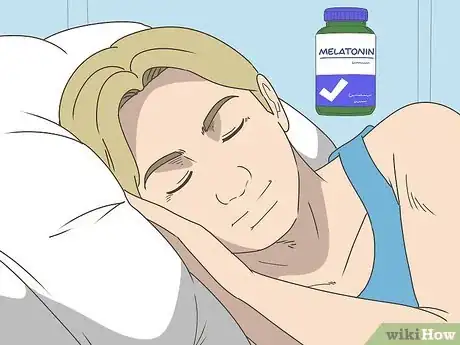

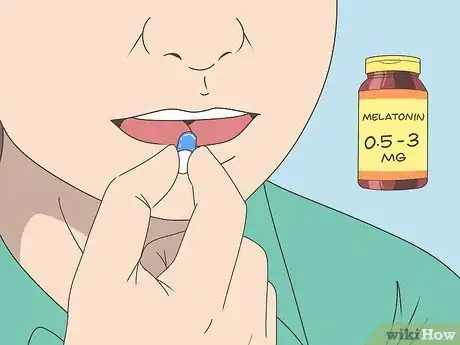
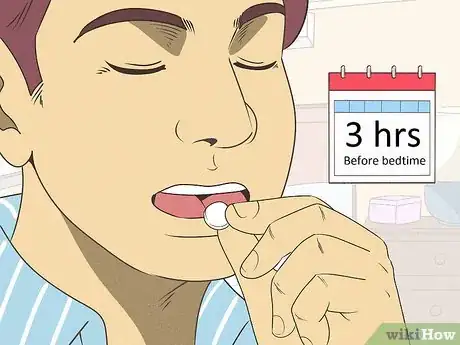
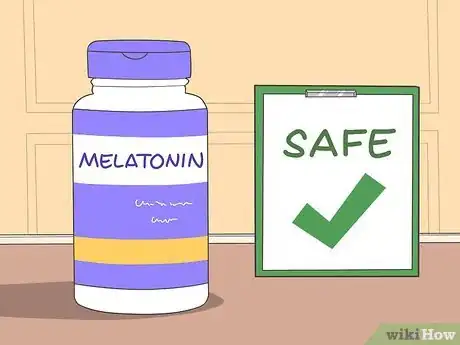
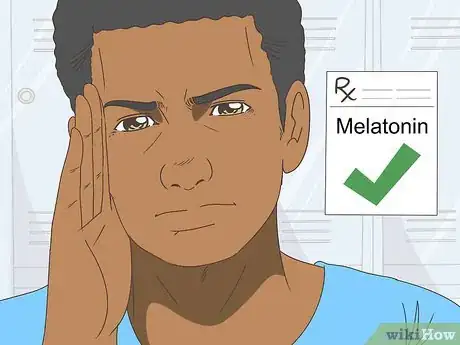
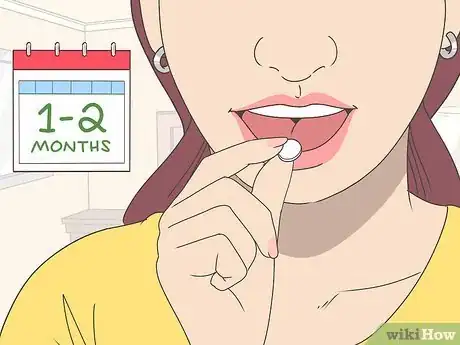
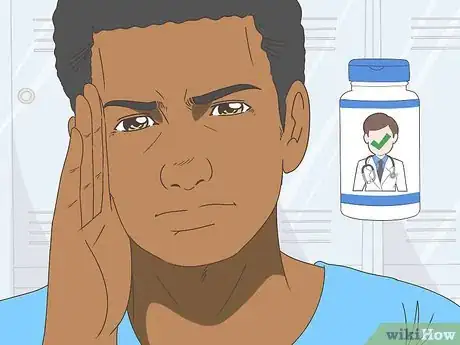

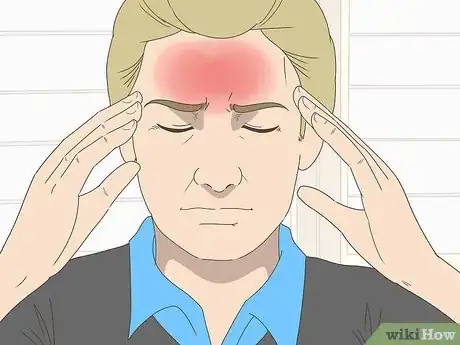
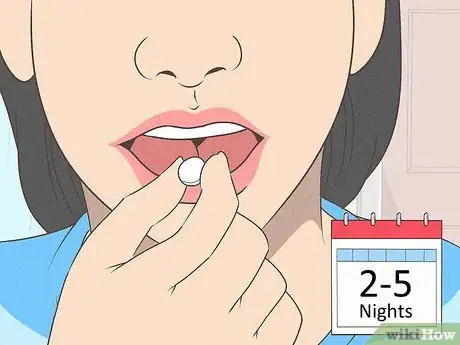
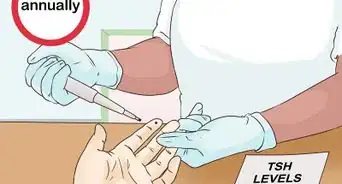



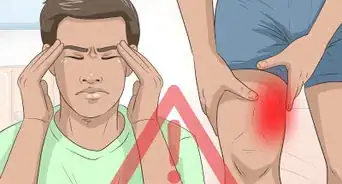







-Step-12-Version-2.webp)
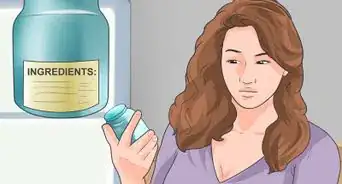










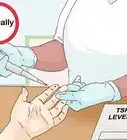







































Medical Disclaimer
The content of this article is not intended to be a substitute for professional medical advice, examination, diagnosis, or treatment. You should always contact your doctor or other qualified healthcare professional before starting, changing, or stopping any kind of health treatment.
Read More...